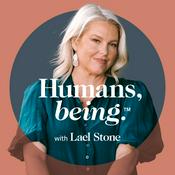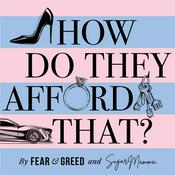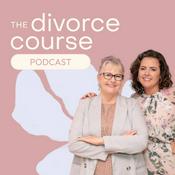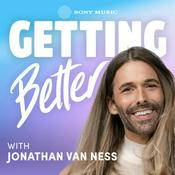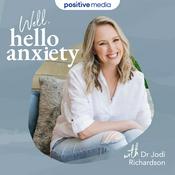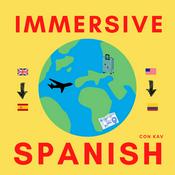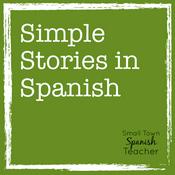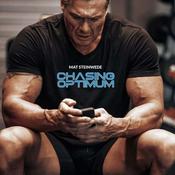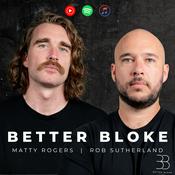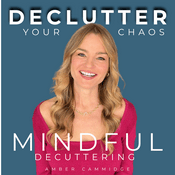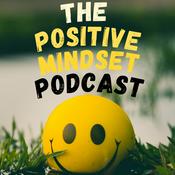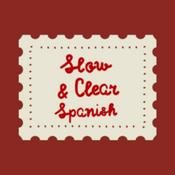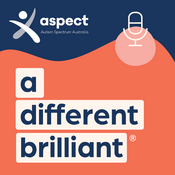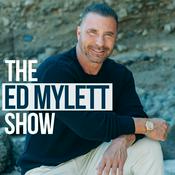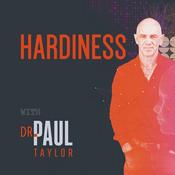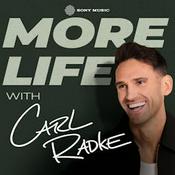147 episodes
146: This Nervous System Regulation Method Will Change Your Life FOREVER | Yerasimos Stilianessis
10/02/2026 | 1h 8 mins.Can human design and acting help you connect in a better way with other people?
In this episode, I sit down with Yerasimos Stilianessis. He was raised in New Jersey by Greek immigrant parents and grew up inside a culture shaped by hard work, responsibility, and resilience. Rather than following the expected path, he chose a different direction, one marked by travel, acting and theater training, and decades of personal development work rooted in self-honesty.
Acting and performance became unexpected entry points into parts work, emotional awareness, and a more nuanced relationship with the inner world. Over time, truth seeking shifted from external confrontation to internal regulation, especially in the aftermath of years spent immersed in activism.
Somatic awareness, masculine embodiment, and the challenge of holding autonomy alongside connection run throughout the conversation, particularly in the context of relationships strained by opposing worldviews. Stories from growing up around Greek diners in New Jersey ground these themes in culture, lineage, and lived experience.
This episode is for listeners who feel less called to persuade, and more called to live in alignment with what they know.
You’ll Learn:
[00:00] Introduction
[04:20] How Greek diners in New Jersey shaped early identity and relational awareness
[10:45] What breaking from the expected success path unlocked internally
[18:30] How acting training revealed parts work and psychological depth
[27:15] Why questioning health narratives became a catalyst for truth seeking
[36:40] What the body exposes when speaking publicly under pressure
[45:10] Why post-2020 burnout reshaped views on activism and attention
[53:25] How masculine embodiment shifts from persuasion to lived values
[01:01:10] Why peace and presence emerge as mature expressions of truth
👉🏻 Want to start a podcast like this one? Book your free podcast planning call here.
Resources Mentioned:
Dancing Naked in the Minefield by Dr. Kary Mullis | Book
Voice Dialogue/Psychology of Selves | Website
Human Design Modality | Website
Connect with Yerasimos:
Here For The Truth | Website
Here For The Truth | Instagram
Here For The Truth | Telegram
Here For the Truth | Apple or Spotify
Yerasimos | Instagram
Learn more about Yerasimos 10-week journey Rise Above the Herd and use code KELLY10 for 10% off.
Find more from Kelly:
YouTube: Reclamation Radio with Kelly Brogan, MD
Instagram: @kellybroganmd
Website: kellybroganmd.com
Join Kelly's monthly membership, Vital Life Project here.
Get Kelly’s new book The Reclaimed Woman here.
Go to juvent.com and use code KELLY300 at checkout to get $300 off your purchase. If you’ve been on the fence, now is the time to pull the trigger: prices for the Juvent Micro-Impact Platform rise on February 21—the first price increase in 5+ years. Lock in the current price now and avoid paying more later.- You don’t need to hit rock bottom to change everything.
In this episode, I sit down with James Swanwick for a grounded, honest conversation about alcohol-free living and why so many thoughtful, high-functioning people are quietly questioning their drinking. We talk about the cultural moment we’re in, the limits of traditional recovery models, and why white-knuckling never leads to freedom.
I share my own path away from social drinking and what surprised me most about the shift.
Mindful sobriety isn’t about deprivation; it’s about choosing a life that actually feels good to live.
This episode is for anyone who is sober-curious, questioning the role of alcohol in their life, or looking for a more humane, sustainable approach to change. If you’ve ever wondered whether there’s another way, without labels, shame, or rock bottom, this conversation opens up a new perspective.
Learn more about his programs here.
You’ll Learn:
[00:00] Introduction
[06:02] Why addiction often runs on a push-pull dynamic that quietly drains energy and agency
[09:38] How the cultural shift away from alcohol is emerging first in younger generations
[11:54] What happens when “normal” drinking erodes health and relationships
[12:47] The moment a casual drinker realizes alcohol is costing more than it gives
[28:10] Why traditional recovery models often miss high-functioning, gray-area drinkers
[30:45] How identity labels can freeze growth instead of supporting real change
[46:12] Why focusing on desire creates more lasting change than focusing on restraint
[56:58] How an alcohol-free life can feel expansive rather than restrictive
👉🏻 Want to start a podcast like this one? Book your free podcast planning call here.
Resources Mentioned:
Clear by James Swanwick | Book or Audiobook
The Sober Truth by Lance Dodes | Book or Audiobook
The Diagnostic and Statistical Manual of Mental Disorders | Website
Rat Park: How a rat paradise changed the narrative of addiction. by Gage, S. H., & Sumnall, H. R. | Article
Randomized controlled trial of harm reduction treatment for alcohol (HaRTA) for people experiencing homelessness and alcohol use disorder by Susan E. et al. | Article
Connect with James:
Alcohol Free Lifestyle | Website
Swanwick Sleep | Website
James Swanwick | Wikipedia
James Swanwick | Instagram
Find more from Kelly:
YouTube: Reclamation Radio with Kelly Brogan, MD
Instagram: @kellybroganmd
Website: kellybroganmd.com
Join Kelly's monthly membership, Vital Life Project here.
Get Kelly’s new book The Reclaimed Woman here.
You can head to lotuswei.com and use the code Kelly15 for 15% off.
Go to juvent.com and use code KELLY300 at checkout to get $300 off your purchase. - If you feel the need to always speak your opinions, you might be “addicted” to seeking the attention of others.
In this episode, I unpack one of the most charged questions I hear: how to tell whether you’re self abandoning or actually accepting reality. There are subtle ways codependency shows up, even in people who think they’re being calm, spiritual, or evolved… especially when silence becomes a strategy.
Over-speaking and under-speaking, and how both can be driven by the same nervous system impulse, are two common patterns I see again and again. We talk about anxious attachment, avoidant tendencies, and the “giving to get” dynamic that drains your sense of self.
You’ll also hear why trying to get someone else to see your perspective often costs more than it gives, and how real boundaries begin with knowing what you want, not managing how others live their lives. This conversation is for anyone tired of performing self-control while feeling internally split, and ready to build self-trust that doesn’t depend on being understood.
You’ll Learn:
[00:00] Introduction
[01:02] The difference between self-abandonment and letting others live their lives
[02:14] Why “giving to get” turns both silence and speaking up into self-betrayal
[03:21] The subtle ways codependency hides inside helping, supporting, or being reasonable
[04:28] What’s really happening when you need someone else to see your perspective
[05:46] How anxious attachment drives over-explaining without meeting your actual needs
[07:12] When withdrawal and invisibility start to look like maturity while eroding self-trust
[09:03] How to recognize when your voice is coming from control instead of self-attunement
[11:01] Why real boundaries start with knowing what you want, not managing others
👉🏻 Want to start a podcast like this one? Book your free podcast planning call here.
Find more from Kelly:
Instagram: @kellybroganmd
Website: kellybroganmd.com
Join Kelly's monthly membership, Vital Life Project here.
Get Kelly’s new book The Reclaimed Woman here. - What if the man you’re chasing isn’t your type… he’s your father, unfinished?
In this episode I share a powerful somatic practice rooted in family constellations that helps disentangle the father wound from adult intimacy. If you’ve struggled with codependent relationships, anxious-avoidant dynamics, or an almost magnetic pull toward emotionally unavailable men, this episode is for you.
Most importantly, I introduce a way to mature the internal father, integrating both shadow and strength, so your nervous system no longer confuses longing with love. This is about reclaiming agency, restoring emotional safety, and relating from adult self-possession rather than unconscious repair.
If you’re ready to stop reenacting the past and start choosing from clarity, this episode opens a new door.
You’ll Learn:
[00:00] Introduction
[01:08] Why attraction to unavailable men can feel obsessive, and how Eros pulls you toward unresolved wounds
[02:14] How romantic partners become stand-ins for the father, and why projection creates suffering
[03:05] How the father wound shows up as embodied unsafety rather than a story or diagnosis
[03:52] What it means to create safety by maturing the internal father instead of fixing men
[05:04] How a simple family constellations practice works through the body as truth
[07:02] What you notice when you place father and partner side by side, and why discomfort matters
[09:03] Why saying “you are not my father” releases trapped relational energy
[11:02] How separating father from partner opens the possibility of adult, sovereign love
👉🏻 Want to start a podcast like this one? Book your free podcast planning call here.
Find more from Kelly:
Instagram: @kellybroganmd
Website: kellybroganmd.com
Join Kelly's monthly membership, Vital Life Project here.
Get Kelly’s new book The Reclaimed Woman here.
Go to the Juvent Store and use code KELLY300 at checkout to get $300 off your purchase. - Learn more about Kelly's Relaxed Woman System here.
I didn’t think Dr. Joe Dispenza’s work applied to me — then his event cracked open an entirely new understanding of healing.
What if the breakthrough you’re chasing doesn’t come from digging into your past, but from stepping into the future version of you who already made the shift?
In this conversation with Dr. Joe Dispenza, I share what happened when I attended one of his in-person retreats. I went in assuming I wasn’t the target audience. I already felt “healthy.” But watching people transform without revisiting old wounds or tracing root causes cracked something open for me. Some changed in a single meditation. These weeklong immersions push people past the point where they normally stop, creating measurable shifts in their brains and bodies.
We talk about why people stay stuck, the role of victim consciousness and secondary gain, and the emotional patterns behind health issues, money struggles, and relationship loops. And then we dive into abundance — the topic Joe resisted teaching — and why it’s really an issue of identity, not circumstance.
Because once you understand how your internal state shapes your external world, the entire map of healing changes.
You’ll Learn:
[00:00] Introduction
[07:14] Why one long meditation can upend the belief that healing requires visiting your past
[08:38] What shifts when a weeklong immersive pushes you past your usual stopping point
[21:14] Why Joe rejects the “guru effect” and keeps the transformation off himself
[25:47] How volunteers and coherence groups expose the real engine behind this work
[39:04] The moment Joe finally agreed to teach abundance after years of resisting
[41:29] Why expanding abundance beyond money reshapes daily life
[49:02] The traits that keep sick or financially struggling people locked in survival mode
[50:35] How dropping excuses and worst-case thinking becomes the pivot to abundance
[59:03] What opens when you feel your future before it arrives
👉🏻 Want to start a podcast like this one? Book your free podcast planning call here.
Resources Mentioned:
Believing, Behaving, Becoming Abundance with Dr. Joe Dispenza | Course
Connect with Dr. Joe Dispenza:
Instagram: @drjoedispenza
Website: drjoedispenza.com
YouTube: @drjoedispenza
Watch Stories of Transformation with Dr. Joe Dispenza. Real people. Real change. Real stories of what happened when they applied the work.
Find more from Kelly:
Instagram: @kellybroganmd
Website: kellybroganmd.com
Join Kelly's monthly membership, Vital Life Project here.
Get Kelly’s new book The Reclaimed Woman here.
Go to juvent.com and use code KELLY300 at checkout to get $300 off your purchase.
More Education podcasts
Trending Education podcasts
About Reclamation Radio with Kelly Brogan MD
It hurts to have unmet needs. And it sucks to scurry after crumbs when you’re starving. Join Kelly Brogan MD, as she teaches us how our pain points are portals. She’ll help you discover a world where every seeming challenge is a new chapter in your most audacious story. Plot twists, body symptoms, and heartbreak each represent an opportunity to own ourselves and learn to better wield the power of choice. Kelly will take you on a reclamation journey from the battlefield of victim consciousness to the sovereignty of self-devoted pleasure and expose every surprising place you’ve given your power away. Explore the tools you’ll need to find out what you want, how to ask for it and how to stand in fierce alignment with yourself.Kelly Brogan is a soul alchemist and threshold guardian devoted to the transformation of collective consciousness. As a young know-it-all atheist, candy-addict, straight-A MIT neuroscience major and Ivy-league trained psychiatrist, she specialized in feeding women, herself included, straight into the mouth of the medicated beast. After a Hashimoto’s healing journey inspired her to sound the alarm on the bait-and-switch of big pharma, she became a renegade activist—authoring the New York Times bestseller, A Mind of Your Own, and its follow-up, Own Your Self; co-editing the landmark textbook, Integrative Therapies for Depression; and eventually becoming an honorary member of the Disinformation Dozen. She is the creatrix of Vital Mind Reset, the online health reclamation program, and the membership community Vital Life Project. She’s a human, cat, and chicken mom.
Podcast websiteListen to Reclamation Radio with Kelly Brogan MD, The Jefferson Fisher Podcast and many other podcasts from around the world with the radio.net app
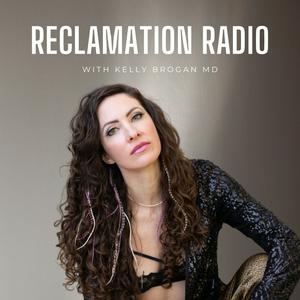
Get the free radio.net app
- Stations and podcasts to bookmark
- Stream via Wi-Fi or Bluetooth
- Supports Carplay & Android Auto
- Many other app features
Get the free radio.net app
- Stations and podcasts to bookmark
- Stream via Wi-Fi or Bluetooth
- Supports Carplay & Android Auto
- Many other app features


Reclamation Radio with Kelly Brogan MD
Scan code,
download the app,
start listening.
download the app,
start listening.


